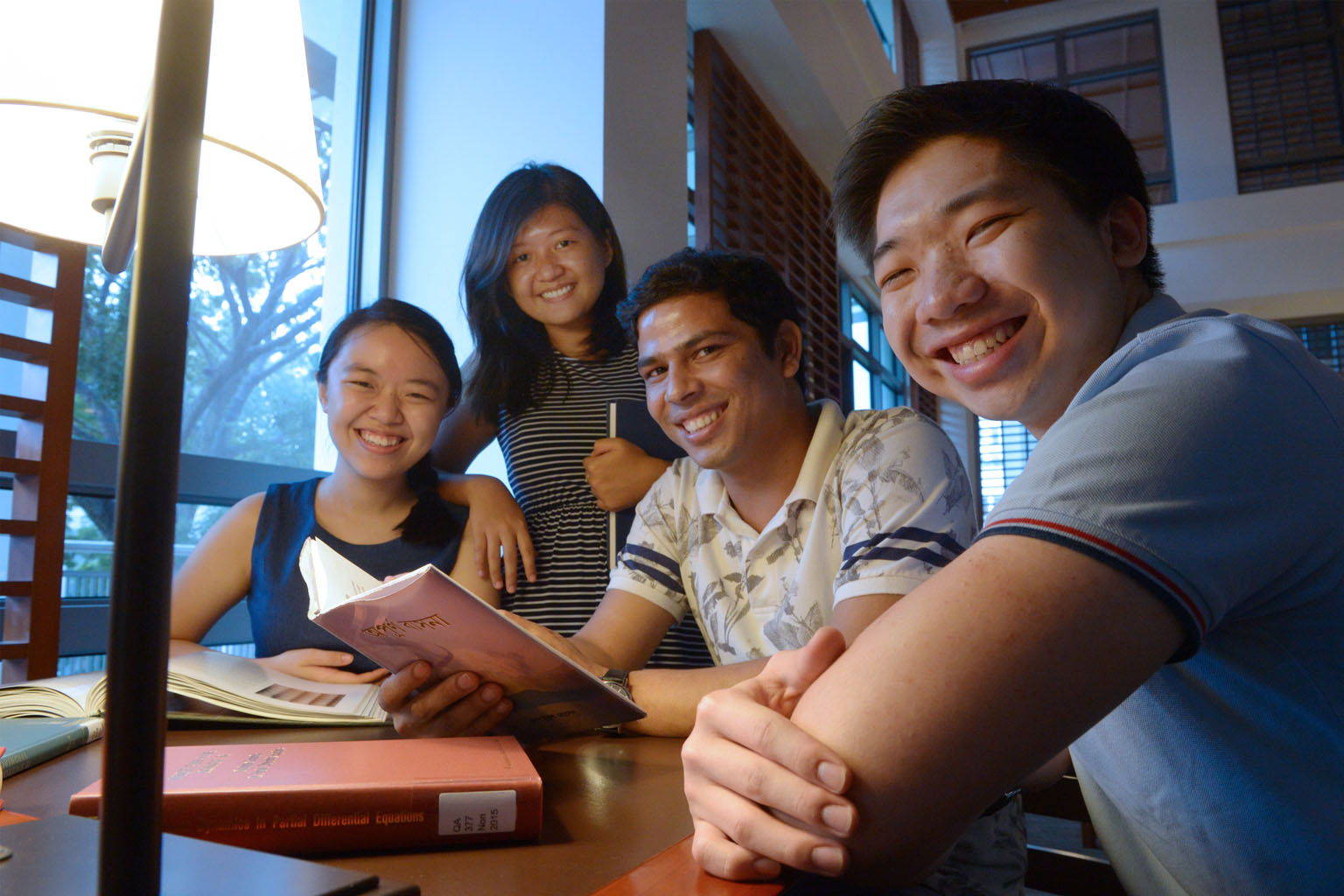Bridging gap with migrant workers
Week-long event at NUS will bring locals and workers together
Sign up now: Get ST's newsletters delivered to your inbox

Bangladeshi worker Md Mukul Hossine (second from right) with students from the Migrant Workers Awareness Week organising committee, (from left) Ms Teo Xiao Ting, Ms Kimberley Pah and Mr Walter Yeo. Mr Mukul will read his poetry to students as part of the event.
ST PHOTO: LIM SIN THAI
Follow topic:
By day, Bangladeshi worker Md Mukul Hossine paints walls and carries cement at a construction site.
By night, the 24-year-old writes poems about loneliness and his family back home. On Thursday, he will read his poetry to local students at Migrant Workers Awareness Week (MWAW), an initiative launched by National University of Singapore and Yale-NUS students to bridge the gap between the local and migrant communities.
The five-day series of events, which begin today on the NUS campus, are expected to bring together close to 400 students and members of the public, and more than 130 foreign workers.
MWAW vice-president Walter Yeo, 24, said: "We wanted not just to raise awareness about the very crucial role that migrant workers play in Singapore, but also to empower them."
The Yale-NUS law and liberal arts student hopes MWAW can address tensions in society, from the 2013 Little India riots to news this month of 27 Bangladeshi workers being arrested for planning terror attacks back home. "Many of us only know who migrant workers are through second-hand sources, which don't convey who they are as people, their hopes and aspirations. We hope through interactions like MWAW, we can slowly start changing people's impressions."
The event is an expansion of the first MWAW, which was held in 2014 at the NUS Law Faculty in Bukit Timah for four days. This year's MWAW is supported by the university, as well as by donors such as law firm Rajah & Tann.
Besides attending panel sessions, local participants may also visit a Tuas worker dormitory or share lunch with a maid staying at a shelter. At Dialogue in the Dark, participants will talk to migrants including construction labourers and sex workers. It takes place in a darkened room, which organisers hope will erase visual differences and make sharing easier.
Ms Lisa Jaffar, 36, associate programme coordinator with sex workers' rights group Project X, said the panel sessions and dialogues in the dark were a good platform for migrants and sex workers to share their experiences: "People don't understand migrant sex workers face dangers like abuse from clients, or harassment from law enforcement officers and pimps.
"A lot of sex workers have difficulties voicing their fears about violence or harassment. They need a safe space to share about this."
Mr Mukul, who will be reading his poetry at Dialogue in the Dark, said: "Migrant workers can do other things than what you see them doing. They can sing, they can write. They have pain. But if I can open up my pain and share it with people, it makes me happy."
Other highlights include A Day in the Life, an exhibition on a foreign worker's experience here, and Voices from the Margin, a writing workshop where Bangladeshi construction workers can get help with their English skills.

